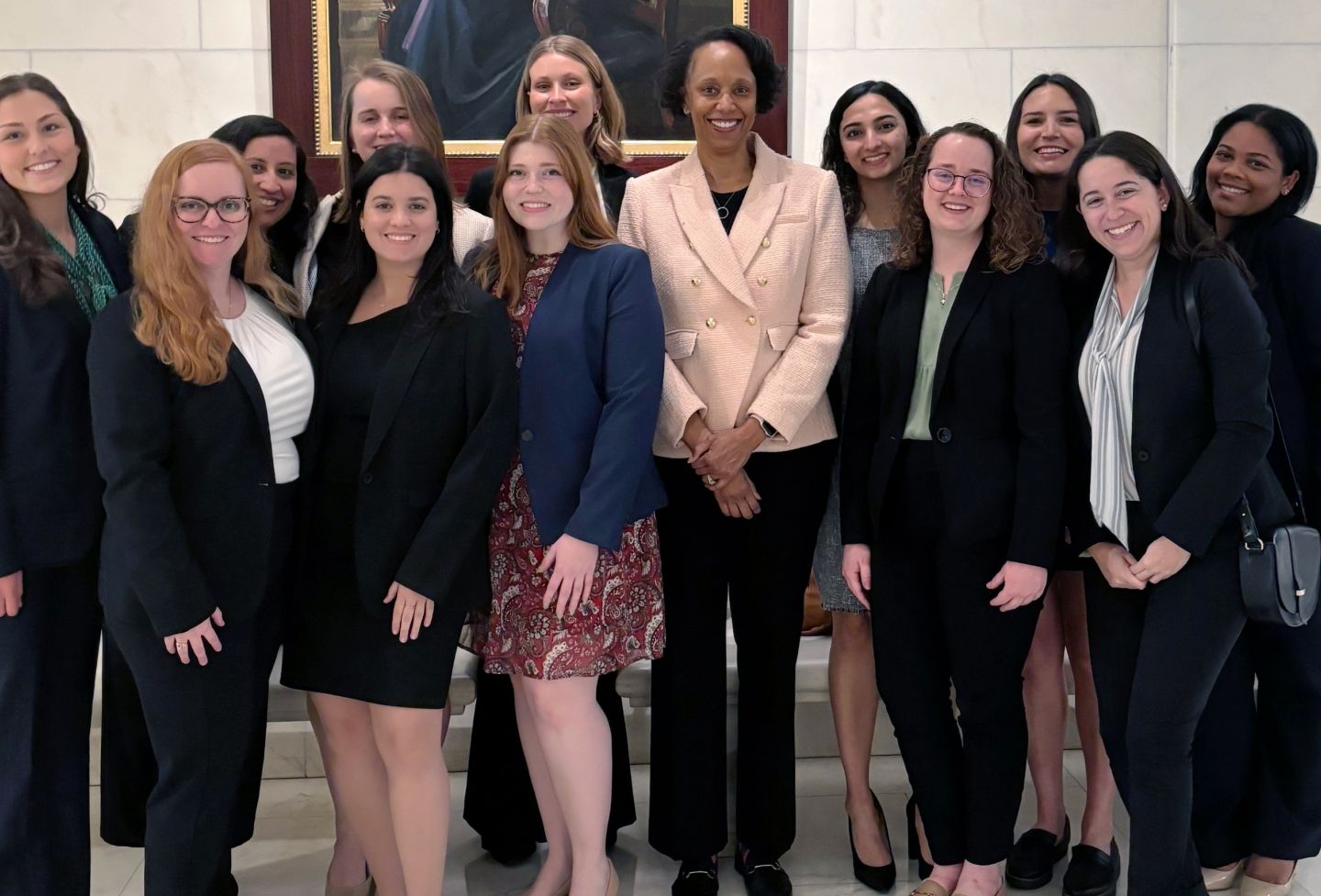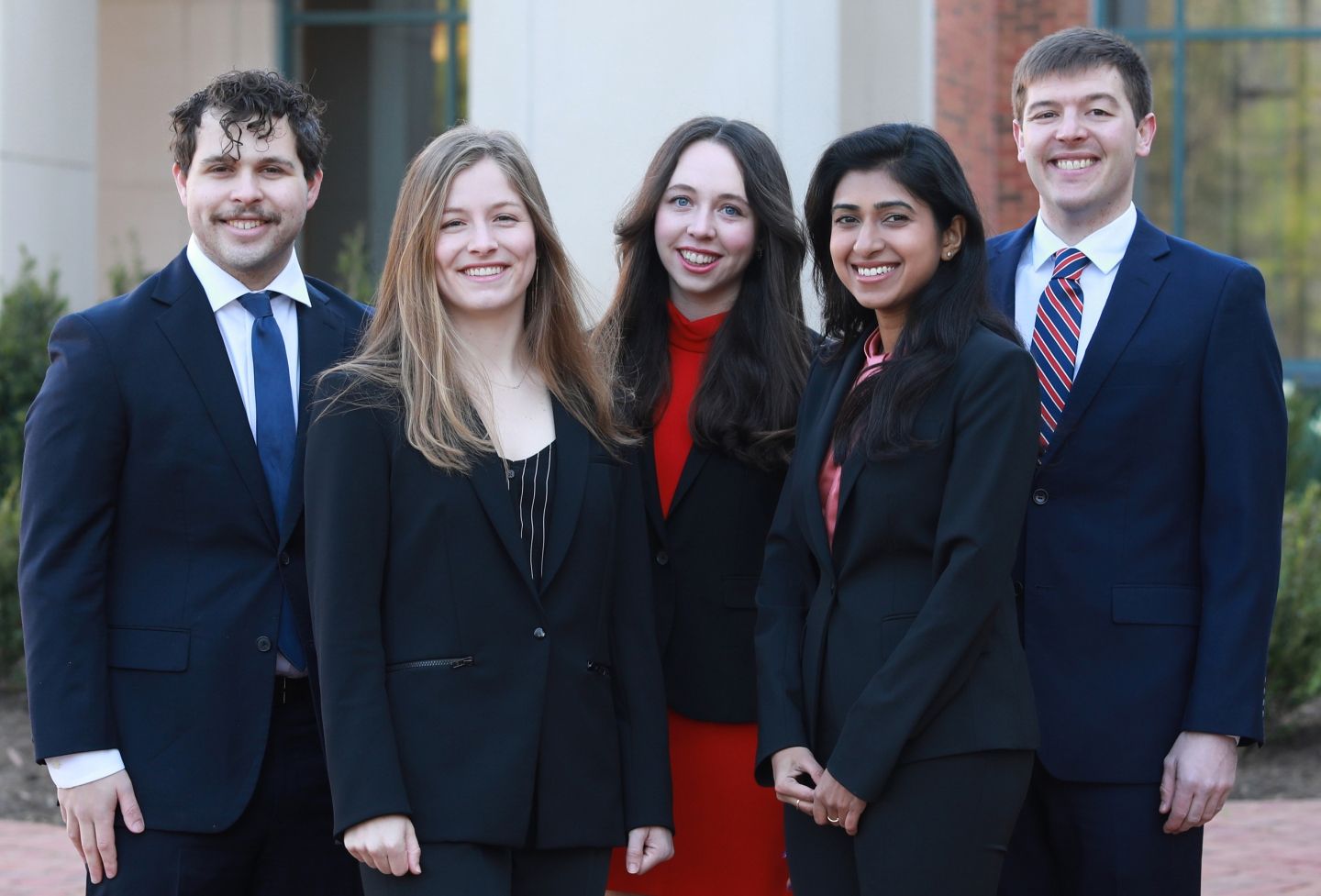Emerson Stevens is the third client of the Innocence Project at the University of Virginia School of Law to receive an absolute pardon from Virginia Gov. Ralph Northam in a month’s time.
In 1986, Stevens was convicted of the abduction and murder of Mary Keyser Harding, a Lancaster mother of two. The only physical evidence ever linking Stevens to the crime involved a purported hair follicle match by forensics investigators, using methods that scientists no longer consider valid. His sentence was set at 164 years in prison — 32 of which he served before being paroled in 2017.
On Monday, Stevens celebrated his exoneration, which was announced Friday, with his first public comments. While criticizing “junk science” and a police special agent whose investigation led to his conviction, Stevens also showed gratitude to the Innocence Project and others in his press statement.
“I want to thank all the lawyers and students that have been working on my case for years,” Stevens said. “I am hopeful that life will be easier for me without this murder conviction on my record.”
One of Stevens’ daughters and both his parents died while he was in prison. He and his wife divorced. After being released on parole, he lost jobs because of the stigma from the conviction. Now, Stevens’ rights will be fully restored, and he can seek compensation from the state.
Innocence Project clients Bobbie Morman Jr. and Joey Carter also recently received absolute pardons.
The Innocence Project gives law students hands-on experience investigating claims of innocence in Virginia through a yearlong for-credit clinic as well as a separate student pro bono effort.
The clinic learned in 2016 about a box of documents pertaining to the Stevens investigation that his defense counsel did not know about during the trial. According to the Innocence Project, the documents included evidence of coercive police practices, witness statements that contradicted the prosecution’s case and lists of additional witnesses that may have undermined the state’s case against him. The find helped Stevens receive parole.
“We’re relieved that Emerson Stevens has finally been exonerated,” said Professor Jennifer Givens, the clinic’s director. “One of the most troubling things about this wrongful conviction is that it has taken 35 years for Emerson to find any semblance of justice. And, of course, the devastation that this has caused him and his family is irreversible, as is the emotional toll this case no doubt has taken on Mary Harding’s family, who have yet to see the actual perpetrator prosecuted for her murder.”
Stevens became a client of the Innocence Project in 2010 under Deirdre Enright ’92, the clinic’s inaugural director, who in the spring will direct a separate criminal law reform clinic. Enright, Givens and then-staff attorney Juliet Hatchett ’15, now an assistant professor and associate director of the clinic, filed the formal request for absolute pardon last year.
“Emerson’s case was with the clinic when I was a student, and it was the first case I worked on when I returned as an attorney two years ago,” Hatchett said. “The thousands of hours that went into this case are staggering. We say it often, but Emerson’s case is a stark illustration of how easy it is to wrongfully convict someone, and how nearly impossible it is to reverse that conviction. This exoneration is the product of years of investigation, years of litigation, and enormous dedication from our student teams and attorneys.”
The governor’s action was informed by a Fourth Circuit decision in April of 2020 that permitted Stevens to move forward with his petition to be fully exonerated through the court system. Givens argued the case. Judge Stephanie Thacker stated in her opinion, concurrent to the decision, that no reasonable jury would have convicted Stevens if given the full evidence.
The absolute pardon finally clears Stevens’ name, without any further process needed.
“I appealed my case many times, and I lost over and over,” Stevens said. “But the Innocence Project at UVA School of Law investigated my case for years, got me back into court, and never gave up.”
Founded in 1819, the University of Virginia School of Law is the second-oldest continuously operating law school in the nation. Consistently ranked among the top law schools, Virginia is a world-renowned training ground for distinguished lawyers and public servants, instilling in them a commitment to leadership, integrity and community service.


